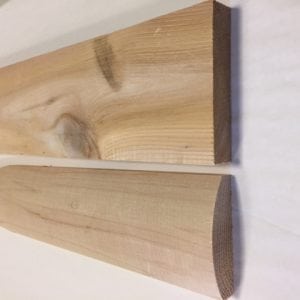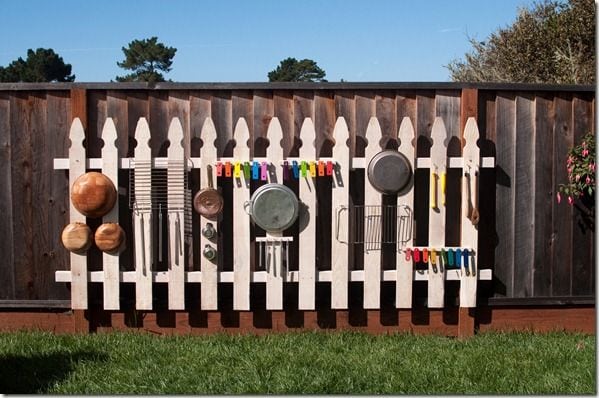Ask a Fence Contractor: Boards vs. Pickets
What is the Difference Between Boards and Pickets?
As a fence contractor, you’re likely quite fluent in the language of your trade. You can quickly differentiate between fence styles and the proper materials needed to build them.
But step back for a moment and consider your clients. Most people rely on images to decide how they would like a fence to look. They won’t be able to describe the project to you in specific language, and may use words like board and picket interchangeably.
Confusing boards and pickets is a common enough occurrence that we’re devoting this blog post to it! Being able to define the difference between boards and pickets will help you and your client come away from the job feeling knowledgeable and satisfied.
By defining the differences between fence materials to your customer early on, you can both be assured that the correct materials are ordered the first time around.

A board (top) is flat on both sides while a picket (bottom) has a signature molded curve on one side.
Here is a basic primer on how AVO translates the differences between a board and a picket:
Picket
- A vertical fence piece that attaches to horizontal rails
- Can be made of wood, aluminum, iron, or vinyl
- When made of wood, a picket will always be molded with a partial curve to it
- Can be flat or pointed on the top side
- Can be used for spaced picket fence or privacy fence (no spaces between pickets)
- 2-3” in width
Board
- A vertical fence piece that attaches to horizontal rails
- Made of wood, vinyl
- Flat on both sides
- Can be flat, rounded, or pointed on the top side
- Can be used for spaced board fence or privacy fence (no spaces between boards)
- 3-6” in width (most commonly sold at 4”)
It is important to note that both types can feature pointed, rounded, or flat tops and be used for spaced or privacy fence projects. The primary differences to highlight are width (boards are generally wider than pickets) and shape (wood pickets are partially curved on one side, boards are always flat).
Using images can be useful during the planning process, but make sure to confirm that your client knows just what they are getting. They will thank you for your expertise!
More than your local fence company. AVO Fence & Supply knows there is always more to learn when it comes to the latest tips,technology and professionalism in the fencing industry. We’re taking that expertise and sharing it here, to help you grow your fencing business. Start planning your next fencing project today at AVO Fence & Supply.

